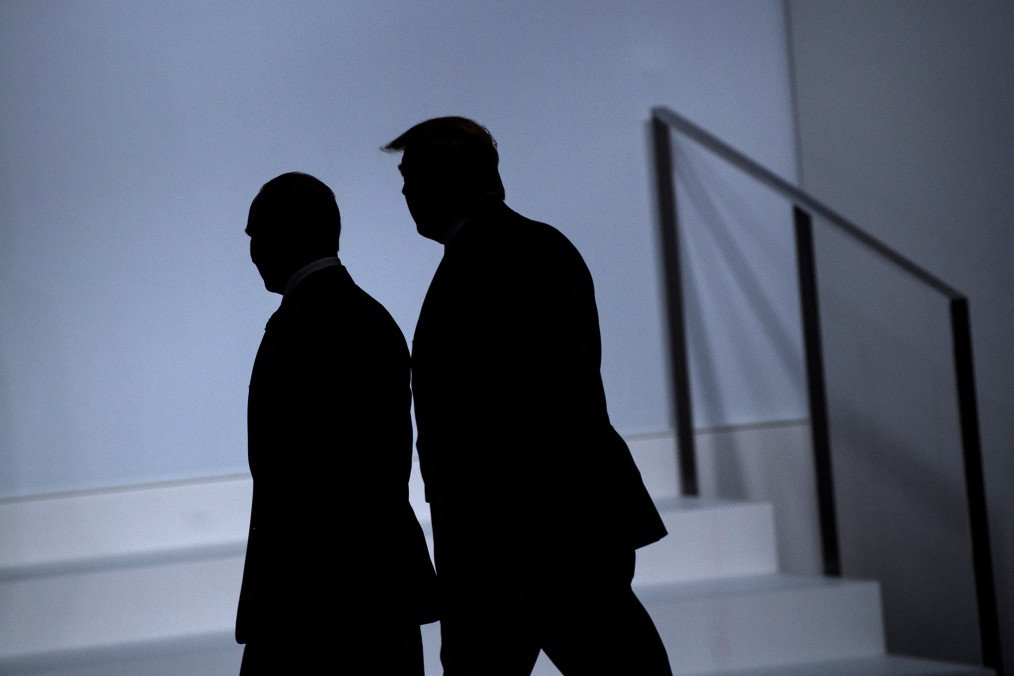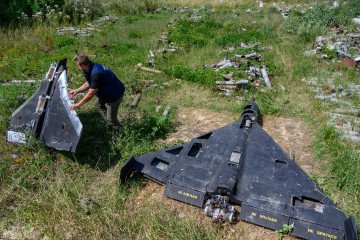- Category
- Latest news
Bloomberg: Trump Asked Putin for Help With Iran Talks, and Russia Said Yes

Russia has agreed to assist U.S. President Donald Trump’s administration in negotiations with Iran over its nuclear program and its support for regional anti-American groups, Bloomberg reported on March 4, citing sources.
According to Bloomberg’s sources, Trump conveyed this information directly to Russian leader Vladimir Putin during a phone call on February 12.
On February 18, senior officials from his administration discussed the matter with their Russian counterparts during talks in Saudi Arabia.
Kremlin spokesperson Dmitry Peskov told Bloomberg that “Russia believes the U.S. and Iran should resolve all issues through negotiations” and that Moscow “is ready to do everything in its power to achieve this.”
When asked whether Russia had offered to mediate between Tehran and Washington, an Iranian Foreign Ministry representative responded that it is normal for countries to extend such offers.
“Given the importance of these matters, it is entirely possible that many parties will show goodwill and willingness to help resolve various issues. From this perspective, it is natural for countries to offer assistance if needed,” Iranian Foreign Ministry spokesman Esmail Baghaei said.
Sanctions against Iran include international trade restrictions prohibiting the export of nuclear, missile, and military-related goods to Iran, as well as foreign investments in the country’s oil, gas, and petrochemical industries.
The sanctions also ban dealings with Iran’s Islamic Revolutionary Guard Corps (IRGC), Iranian banks and insurance companies, financial transactions, and cooperation with Iran’s maritime fleet.
-1afe8933c743567b9dae4cc5225a73cb.png)
The U.S. first imposed sanctions on Iran following the 1979 Islamic Revolution, expanding them in 1995 to include government-controlled firms. In 2006, the UN Security Council passed a resolution demanding Iran halt its uranium enrichment program.
In 2015, Iran, the U.S., Russia, China, Germany, France, and the U.K. signed the Joint Comprehensive Plan of Action (JCPOA), commonly known as the Iran Nuclear Deal, aimed at preventing Tehran from developing nuclear weapons.
On January 17, 2016, the U.S. and EU lifted sanctions on Iran, unblocking approximately $100 billion in frozen assets.
Iran responded by pledging to export 500,000 barrels of oil per day, later increasing this to 1 million barrels per day.
However, in 2018, the Trump administration withdrew the U.S. from the deal and reimposed sweeping sanctions on Tehran.
Earlier, reports emerged that Iran was reportedly expanding its missile development program at two sites allegedly linked to nuclear warhead production.
The sites, identified as Shahrud and Semnan, are allegedly operating under the cover of satellite launch facilities while being overseen by the Organization for Advanced Defense Research, a division associated with the country’s nuclear weapons research.
Located approximately 35 kilometers from the city of Shahrud, the first site is reportedly involved in the production of a nuclear warhead designed to be mounted on the Ghaem-100, a solid-fuel rocket with an estimated range of 3,000 kilometers.




-111f0e5095e02c02446ffed57bfb0ab1.jpeg)

-c439b7bd9030ecf9d5a4287dc361ba31.jpg)
